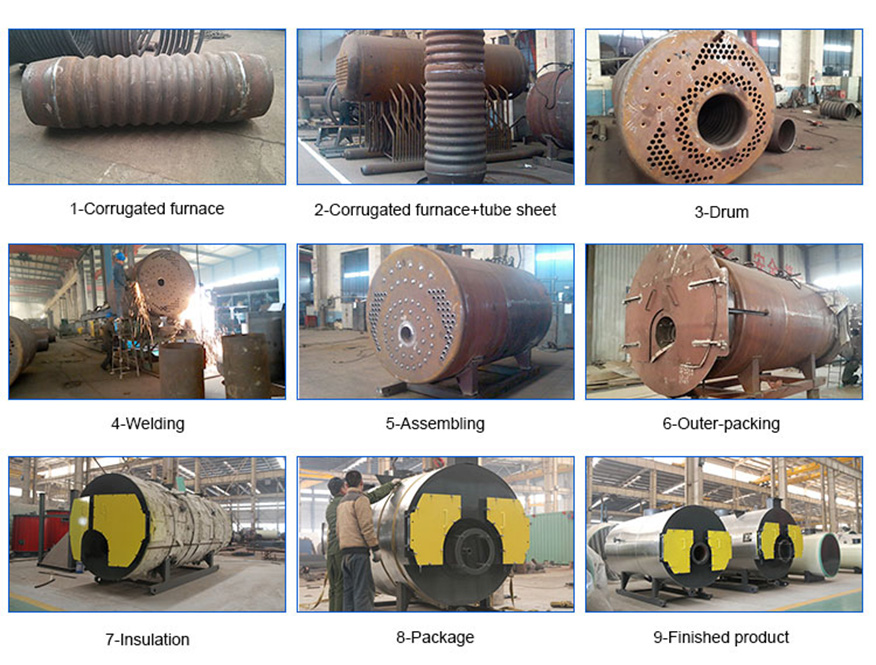buy home steam boiler
Buying a Home Steam Boiler A Comprehensive Guide
When it comes to maintaining a comfortable home environment, the heating system plays a crucial role. One efficient solution that homeowners often consider is a steam boiler. Whether you’re building a new home or upgrading an existing heating system, understanding the intricacies of buying a steam boiler can save you time, money, and energy in the long run.
Understanding Steam Boilers
A steam boiler works by heating water to produce steam, which is then distributed throughout the home to provide warmth. Unlike other heating systems, steam boilers primarily rely on the principles of thermodynamics to circulate heat. The steam transfers energy as it moves through pipes and radiators, radiating warmth in each room.
Key Considerations Before Buying
1. Types of Steam Boilers There are several types of steam boilers available. The most common include natural gas, propane, and oil-fired boilers. Each has its benefits and drawbacks, including energy efficiency, operational costs, and environmental considerations. A natural gas boiler is generally considered the most energy-efficient and cost-effective choice for many homeowners.
2. Size Matters Correctly sizing a steam boiler is crucial for efficient operation. A unit that is too small will struggle to heat your home adequately, while one that is too large will cycle on and off frequently, leading to increased wear and higher energy bills. Consulting with a heating contractor can help determine the appropriate size based on your home’s square footage, insulation quality, and heat loss calculations.
3. Energy Efficiency The efficiency of a steam boiler is measured by its Annual Fuel Utilization Efficiency (AFUE) rating. Aim for a boiler with an AFUE rating of at least 80%, although higher ratings can significantly reduce your energy bills. Investing in a high-efficiency model may have a higher upfront cost but can lead to substantial savings over time.
buy home steam boiler

4. Construction and Materials The materials used in the construction of the steam boiler can impact its longevity and performance. Stainless steel boilers tend to resist corrosion better than traditional cast iron models. Be sure to research the construction materials and opt for reputable brands known for quality and durability.
5. Installation Requirements Proper installation is critical for the efficient and safe operation of a steam boiler. It’s essential to hire a qualified heating contractor who understands local codes and regulations. An improperly installed boiler can lead to hazardous conditions, including gas leaks or carbon monoxide exposure.
Maintenance and Operation
Once you have chosen and installed your steam boiler, regular maintenance is key to its long-term performance. Steam boilers should be inspected annually by a professional to ensure they are running efficiently and safely. Homeowners can also perform simple tasks, such as checking the pressure gauge, ensuring there are no leaks, and cleaning the boiler’s surfaces periodically.
Consider Your Budget
While the initial purchase and installation costs of a steam boiler can be significant, consider the long-term savings on your energy bill and potential increases in home value. It's wise to obtain multiple quotes and evaluate financing options from contractors. Remember that cheaper isn’t always better; investing in a high-quality unit can lead to fewer repairs and a longer lifespan.
Conclusion
Buying a home steam boiler involves careful consideration of various factors, from type and size to installation and maintenance. By understanding your options and asking the right questions, you can ensure that your investment leads to a reliable and efficient heating system. A well-chosen steam boiler not only enhances your home’s comfort but also adds to its overall value, making it a worthwhile investment for any homeowner looking to improve their living environment. Always consult professionals and take your time to research before making a decision, ensuring your home remains warm and welcoming for years to come.
-
Top Electric Steam Boiler Makers | AI-OptimizedNewsJul.31,2025
-
Top Electric Steam Boiler Manufacturers - High Efficiency SolutionsNewsJul.30,2025
-
Top Electric Steam Boiler Manufacturers – Efficient Industrial SolutionsNewsJul.29,2025
-
Top Electric Steam Boiler Manufacturers | Reliable Industrial SolutionsNewsJul.29,2025
-
OEM Steam Boiler Solutions for Custom Needs | High Efficiency & VersatilityNewsJul.29,2025
-
High-Efficiency Thermal Oil Boiler for Industrial Heating SolutionsNewsJul.29,2025

